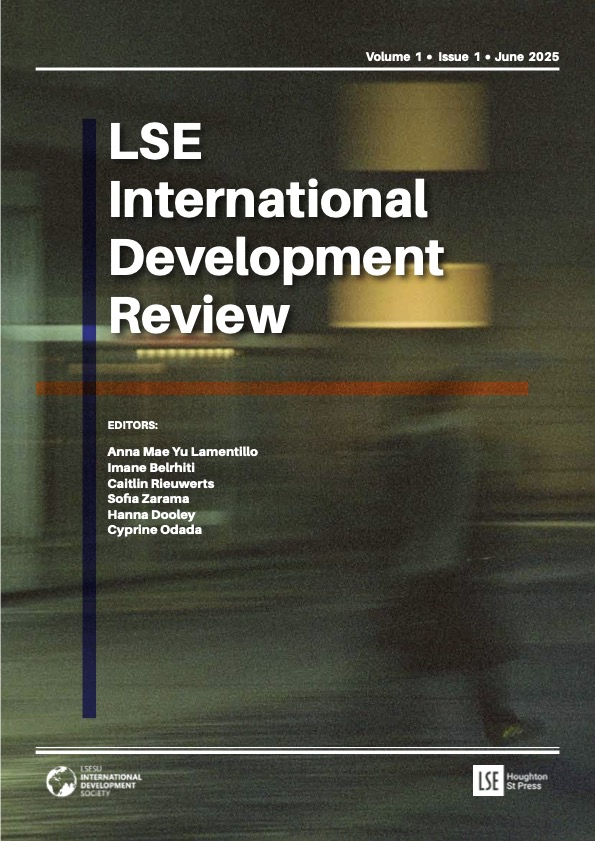Assessing the Viability of the 15-Minute City Model in Metro Manila
DOI:
https://doi.org/10.82191/lseidr.110Keywords:
Philippines, Metro Manila, 15-Minute City Model, Informal settlements, Inner City Districts, Outer Suburbs, Anna Mae Yu Lamentillo, Manila, Makati, Navotas, Malabon, Taguig, Las Pinas, Quezon City, Paranaque, Muntinlupa, Pateros, Pasay, Caloocan, San Juan, Marikina, Mandaluyong, Valenzuela, PasigAbstract
Metro Manila’s rapid urbanization and socio-spatial fragmentation pose significant challenges to equitable development, particularly regarding access to essential services. This study explores the feasibility of the 15-minute city concept as a potential framework for enhancing urban mobility, accessibility, and quality of life across three distinct urban typologies—informal settlements, inner-city districts, and outer suburbs. Drawing on UN-Habitat definitions (2016), these typologies vary greatly in population density, floor area ratio, and dwelling sizes, necessitating tailored strategies for each context.
Short-term (0–2 years) measures emphasize foundational improvements, such as participatory land-use planning in informal areas to secure interim occupancy agreements and implement basic infrastructure. In inner-city cores— characterized by mixed commercial, residential, and institutional uses—pilot programs for car-free weekends and pop-up bike lanes seek to mitigate congestion and improve walkability. Outer suburbs, which often exhibit low-density sprawl and a reliance on private vehicles, benefit from flexible zoning and “pocket hubs” for local commerce. Medium-term (3–7 years) initiatives focus on deeper structural changes, including in-situ upgrading of informal settlements, expanded multimodal public transit in inner cities, and transit-oriented development in suburban areas. Over the long term (8+ years), these efforts evolve into formalized, climate-adaptive communities featuring robust transportation networks, inclusive zoning reforms, and sustainable building standards.
The findings underscore the importance of a phased, context-specific approach. By tailoring interventions to each typology’s strengths and constraints—and ensuring sustained collaboration among government agencies, local stakeholders, and the private sector—Metro Manila can gradually transition to a more inclusive, resilient, and efficient metropolis aligned with the 15-minute city vision

Downloads
Published
Issue
Section
License
Copyright (c) 2025 The Author(s)

This work is licensed under a Creative Commons Attribution 4.0 International License.
Authors who publish with this journal agree to the following terms. If a submission is rejected or withdrawn prior to publication, all rights return to the author(s):
- Authors retain copyright and grant the journal right of first publication with the work simultaneously licensed under a Creative Commons Attribution License that allows others to share the work with an acknowledgement of the work's authorship and initial publication in this journal.
- Authors are able to enter into separate, additional contractual arrangements for the non-exclusive distribution of the journal's published version of the work (e.g., post it to an institutional repository or publish it in a book), with an acknowledgement of its initial publication in this journal.
- Authors are permitted and encouraged to post their work online (e.g., in institutional repositories or on their website) prior to and during the submission process, as it can lead to productive exchanges, as well as earlier and greater citation of published work (See The Effect of Open Access).
Submitting to the journal implicitly confirms that all named authors and rights holders have agreed to the above terms of publication. It is the submitting author's responsibility to ensure all authors and relevant institutional bodies have given their agreement at the point of submission.
Note: some institutions require authors to seek written approval in relation to the terms of publication. Should this be required, authors can request a separate licence agreement document from the editorial team (e.g. authors who are Crown employees).
